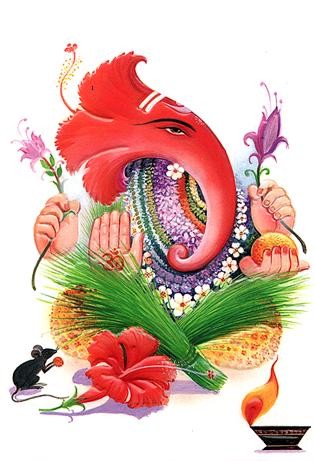Indian filmmaker shuns all 'wood' - Holly or Bolly
Indo-Asian News Service
His Telugu film వనజ (Vanaja) has won 16 awards at over 60 international film festivals, but Rajnesh Domalpalli considers it "a shame" that he still hasn't been able to release it in his home state of Andhra Pradesh, let alone the rest of India.
"To many of our distributors the word 'art film' is synonymous with leprosy. That is why we are now dependent on Western audiences and a US release before trying it once again back home in India," Domalpalli told IANS in an e-mail interview.
Opening its US run in New York City Aug 31, Vanaja will be released in Los Angeles and Chicago Sep 14, Boston, Philadelphia, Austin and Detroit Sep 21, and over a dozen other US cities after that.
His film - about the coming-of-age of a teenaged village girl - has been selected at 83 film festivals in 35 countries and won more film festival awards than any other Indian movie in 2007. But it has not been released in India.
"Bollywood, Tollywood and all the other 'Woods' that make up this immense juggernaut of a jungle are virtually impregnable since most of our audience sees only by 'star light'. Vanaja doesn't have any," he said about the film.
Domalpalli would rather go back to his old profession than make a film for Hollywood or Bollywood.
"I would not make it for a Hollywood, Bollywood or any other kind of wood producer. I would go back to engineering. I believe that the Indian Institute of Technology (IIT) has given me the strength not just to say 'no', but to go back as well.
"I chose people from hutments, labour camps and our vast Indian middle class. Some of the most important characters in the film don't know how to read and write," said Domalpalli, who worked as a computer engineer in California's Silicon Valley before deciding to study Film at Columbia University in New York.
"I don't mean to put them down, but instead, I say this out of pride, that for their work to be recognised the world over can only mean one thing: you don't need stars to make good films. Talent, conviction and grit are the keywords," said the B Tech from IIT Mumbai.
Asked the relevance of such 'social' films in contemporary India, Domalpalli said, "To go to a movie and enjoy a good story, strong visuals, music and acting are one thing, but I've always felt that an audience needs to be engaged intellectually for a film to take on value.
"Apart from Vanaja's central focus on class structure in rural societies, and boundaries that can and cannot be crossed, my intent was to capture a way a life that I see rapidly fading with the advent of the modern age.
"Cell phones and coffee shops have replaced old chai stalls and 'penkutillu' (tiled-roof houses endemic to Telangana). Rural children know the latest Tollywood pop song, but not the folk songs that their grandmothers sing," he lamented.
On the secret of Vanaja's success at so many international film festivals, Domalpalli said, "To get the attention of the cognoscenti of the film world, you have to get into one of the big four: Cannes, Berlin, Toronto or Venice.
"But I think that the key to success in any artistic endeavour is quite simply a respect and love for the art itself. It inevitably shows in the work," he said noting how "Vanaja" created a buzz at its world premiere at Toronto.
"But Berlin was entirely another world. We were very lucky to have got in since the world premiere was already taken. With 185,000 attendees and 3,800 press (2006 figures) it is the world's largest film festival, and we were up against extremely strong competition from several countries, especially Eastern Europe.
"When we won the 'Best Debut' at Berlin, I could barely believe it," he said.
Domalpalli now seems to be banking on the Indian diaspora to expand the impact of ventures like his to larger audiences.
"Reaching a large audience requires a large release - and that takes a lot of money: publicity, rentals, making prints etc. Thankfully though, most art house audiences are extremely loyal, and they will support a film through thick and thin."
Courtesy: Hindustan Times



1 Comments:
The attitude of our Indian cinegoers should change. Movie success should not be based on the star value but the content.You can see this when you see the success of 'Chak de' vs 'Iqbal'.
Post a Comment
<< Home